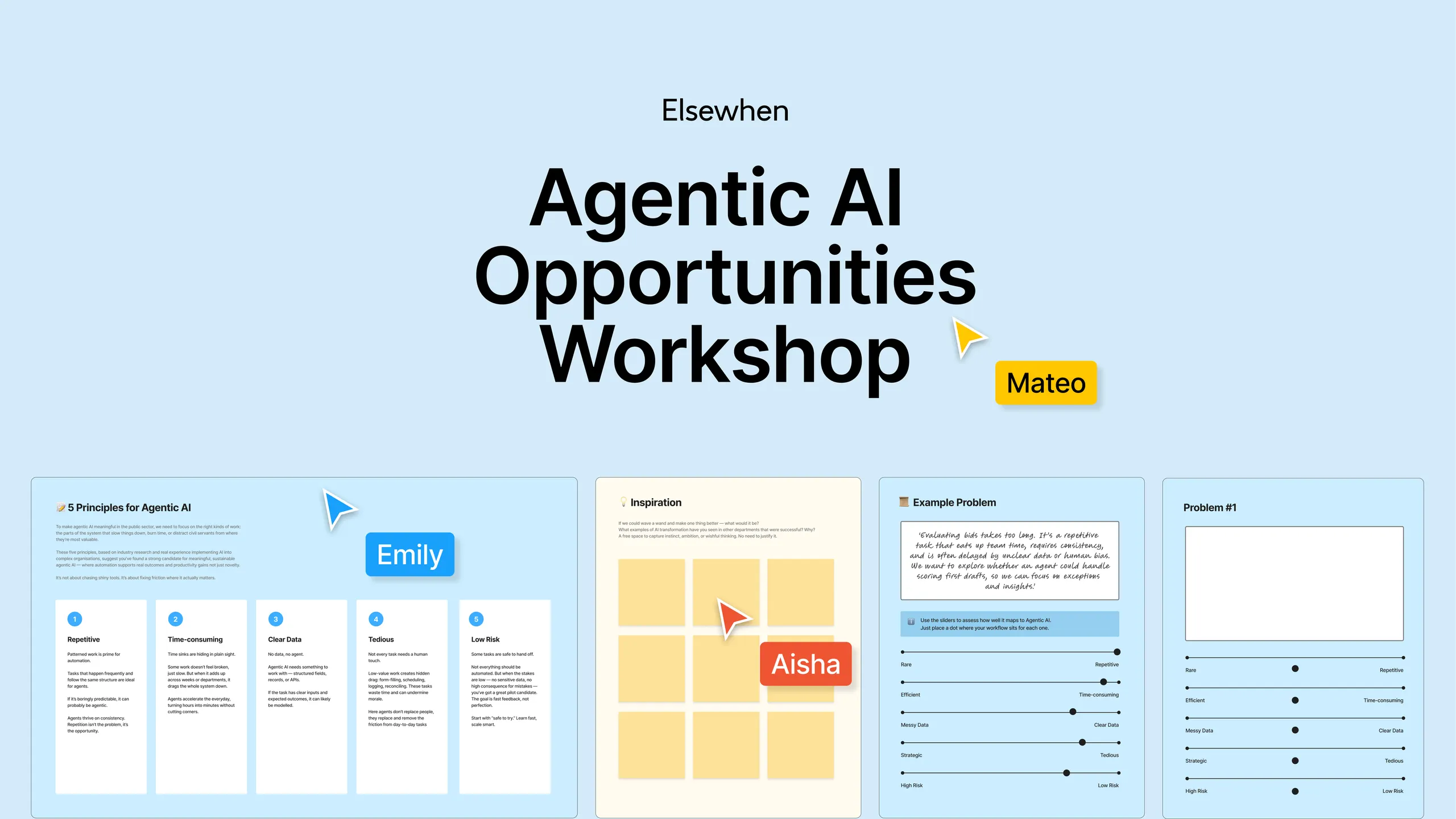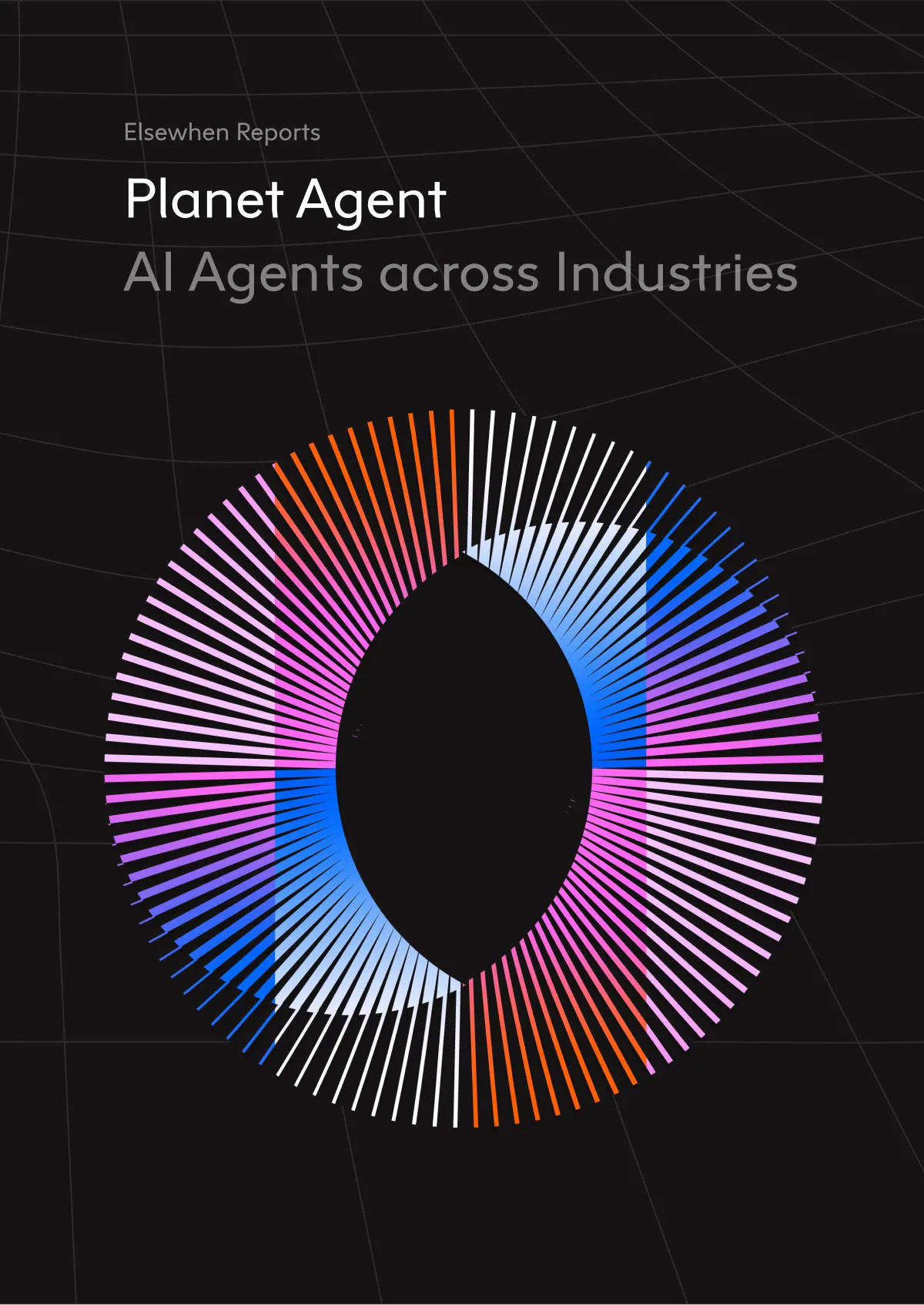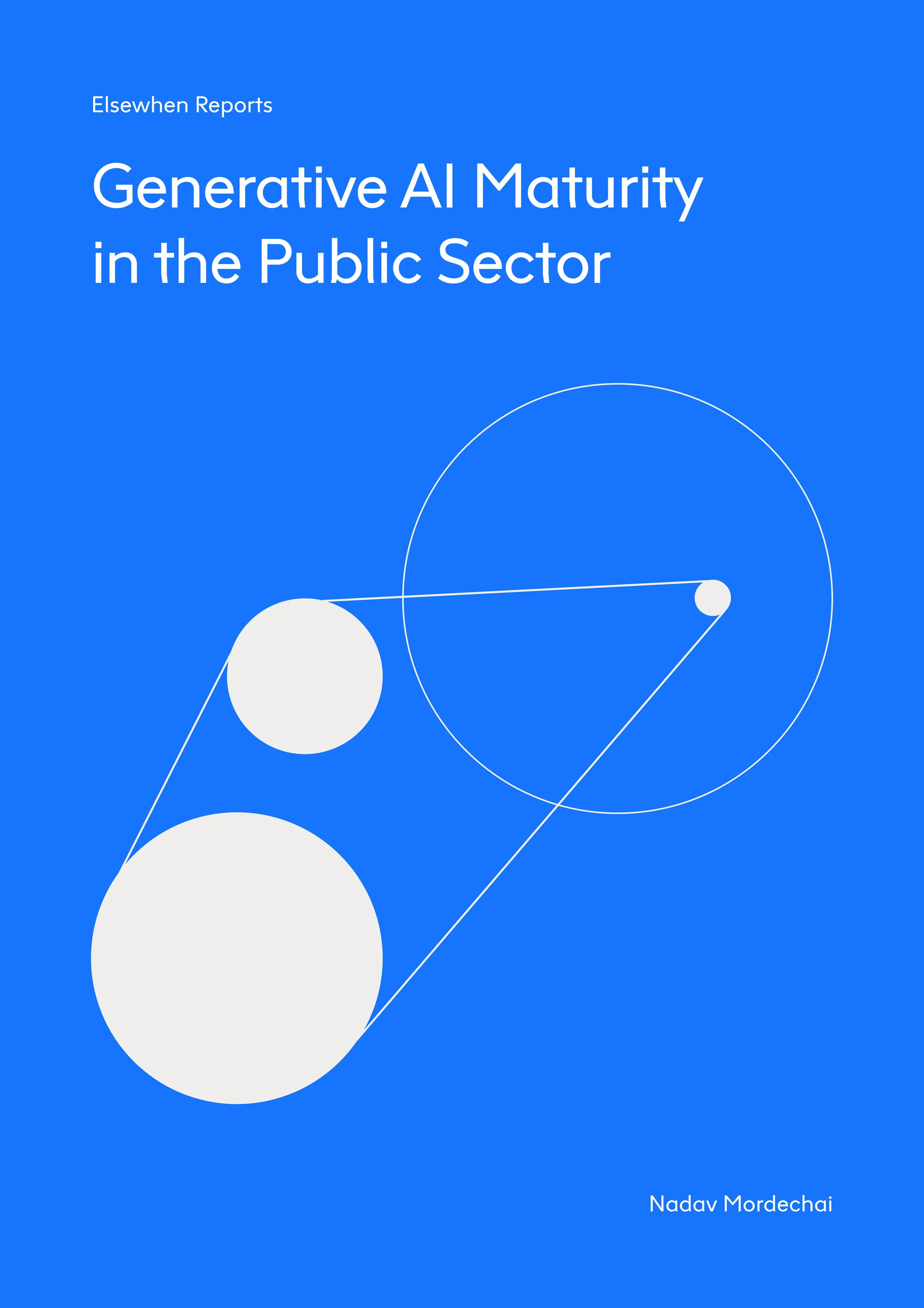When Prime Minister Keir Starmer spoke at this year’s London Tech Week, he issued a clear ambition for AI: “AI innovation making a difference for working people.” In doing so, he elevated AI — and specifically agentic AI — from frontier technology to a national operational priority. At Elsewhen, we view this as a pivotal moment.
Today, talk of AI agents is everywhere. But much of this public conversation centres on personal assistants: tools designed to summarise emails, write documents or help manage calendars. However, these personal productivity helpers are only one small part of the story.
At Elsewhen, We believe the real transformation lies not in individual productivity, but in organisational workflows, agents operating behind the scenes to orchestrate tasks, coordinate systems, and carry out complex operational work that used to take hours of manual labour.
This shift matters because it has the potential to radically change how public services are delivered. From education to planning, asylum processing to hospital discharge, agents are saving time and redefining what’s possible.
In doing so, agentic systems free up the time and energy of civil servants, allowing human talent to focus on where they can uniquely add value: judgment, empathy, and strategy.
In his speech, Starmer spotlighted this very opportunity:
“Jobs that would otherwise have taken hours and hours — done in seconds. A hundred planning records per day, and the usual average up till now is five.”
The message is clear: AI is not just a tool for efficiency. It’s a catalyst for transforming the very operating model of government.
Let’s explore how governments can harness this new class of agentic AI not just responsibly and ethically, but with real impact and at scale.
First Things First: What is Agentic AI?
Agentic AI is artificial intelligence that can plan, make decisions, and adapt on its own. Instead of following a fixed set of instructions like traditional software, these systems work more like independent problem-solvers, choosing the best way to get something done based on the tools and information they have.
As the UK government defines it:
“Agentic AI refers to AI systems composed of agents that can behave and interact autonomously in order to achieve their objectives.”
This means the system figures things out for itself. For example, rather than simply processing a form, an agentic system could check for missing details, flag potential issues, find the right department to handle it, and even follow up without needing to be told each step in advance.
Is Agentic AI the Same as Generative AI?
Not quite. Generative AI refers to systems that create content (like text, images, or code) based on patterns they’ve learned. Think ChatGPT writing a letter, or an AI tool generating an image or video.
Agentic AI goes a step further. It doesn’t only generate, it also decides: what to do, how to do it, and when.
In general, the key with agentic AI is to stop thinking of simply adding AI into a system and start thinking of AI as the system.
“The application of agentic AI in government could lead to productivity improvements of at least 20% to 30%. And also make government faster, more accessible and more transparent.”
Michael JaryFormer Government Lead Non-Executive Director
The Singapore Example
Singapore, at about 10% the size of the UK's population, published an Agentic AI Primer designed to “demystify agentic AI” and move beyond buzzwords to outline real-world applications across the public sector.
The report outlines a number of multi-agent system pilots developed to drive productivity. In one such case, the government’s AI Practice built a multi-agent system that mimicked data scientists working together on tasks, delegating responsibilities, calling in specialist agents, and using tools like graph databases to produce faster, more contextual insights from CRM data.
Demonstrating more than just technical innovation, the paper shows how agentic systems can emulate the way civil servants actually work — coordinating, delegating, and problem-solving — while delivering faster, more productive outcomes at scale.
5 Principles for Agentic AI in the Public Sector
To make agentic AI meaningful in the public sector, we need to focus on the right kinds of work: the parts of the system that slow things down, burn time, or distract civil servants from where they’re most valuable.
These five principles, based on industry research and real experience implementing AI into complex organisations, suggest you’ve found a strong candidate for meaningful, sustainable agentic AI — where automation supports real outcomes and productivity gains — not just novelty.
It’s not about chasing shiny tools. It’s about fixing friction where it actually matters.
- 1
- TediousForm‑filling, reconciling, logging, scheduling. Free people from drag; keep humans for judgement and relationships.
- 2
- RepetitivePatterned, high‑frequency tasks are ideal. If it’s boringly predictable, it’s probably agentic.
- 3
- InefficientSeemingly “fine but slow” activities that compound across teams. Agents turn hours into minutes without cutting corners.
- 4
- Accessible DataTasks where systems and data are reachable. If an agent can’t access the information, it can’t act.
- 5
- Low‑risk Begin where consequences are limited. Prove value quickly, then scale into adjacent, higher‑value flows.

The Path Ahead
Agentic AI is no longer a speculative technology. With its elevation to government policy, the question has shifted from if to how. The real challenge now is embedding it into the machinery of public service in a way that is both impactful and responsible.
This is where the opportunity becomes strategic. By entrusting agents with the repetitive and procedural, civil servants can redirect their focus towards the work that matters most: shaping policy, exercising judgment, and building public trust. AI becomes not just a driver of efficiency, but a force multiplier for human capability and purpose.
That is the path ahead — one where policy and technology reinforce each other to deliver a public sector that is both more productive and more human.
To help turn this vision into reality, we’ve designed a dedicated Agentic AI Opportunities Workshop. It’s a hands-on way for leaders and teams to surface the right opportunities, test ideas safely, and map where agentic systems can free up time for the more strategic, human work of government.



